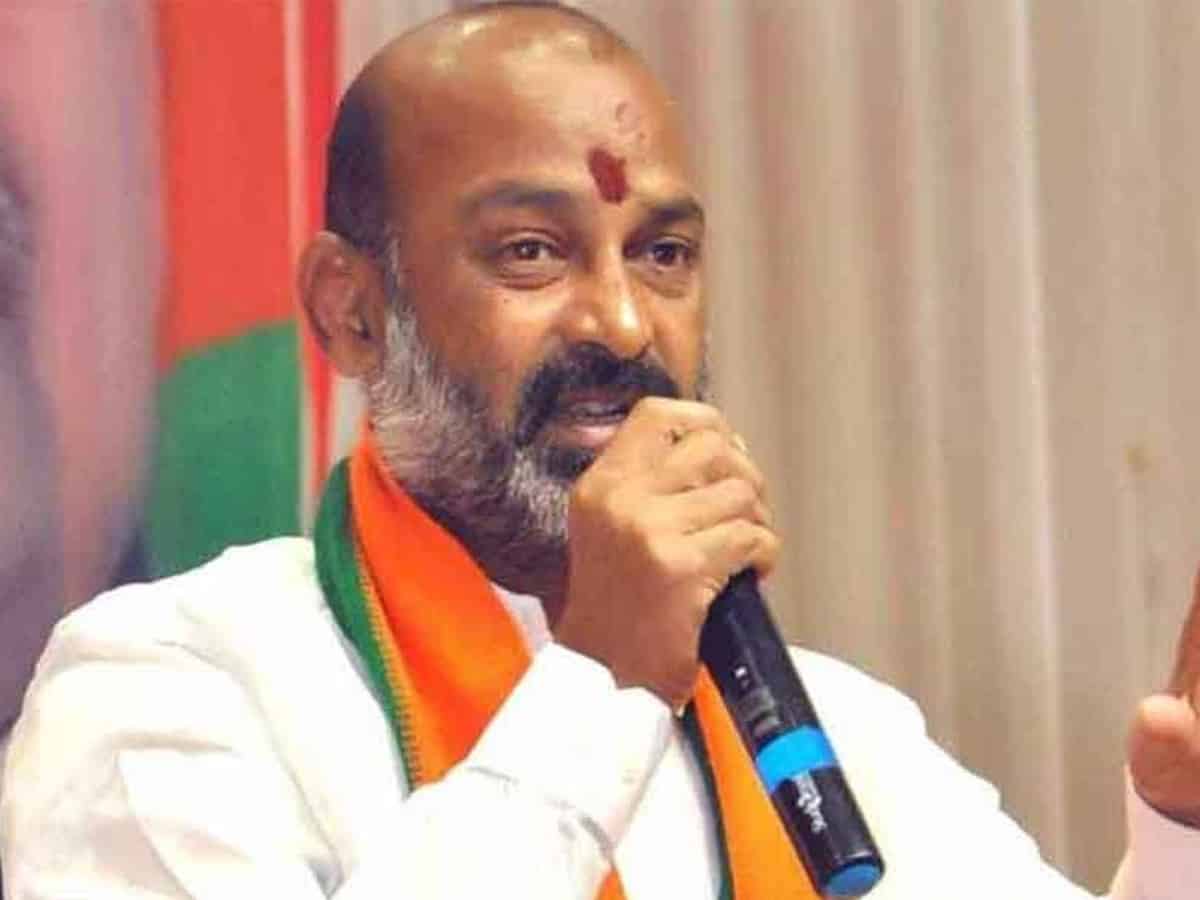New Delhi: After successfully completing five phases of his ‘Praja Sangrama Yatra’, which started in August last year across 57 assembly constituencies, the BJP’s Telangana president Bandi Sanjay is all set to embark on another round of the yatra.
The latest leg of the yatra will be covered in a bus, in line with an idea floated by central leaders.
“We are in the process of finalising the schedule. However, as of now, the plan is to cover 17 Lok Sabha parliamentary constituencies in a space of 35-40 days. We will propose that this phase of yatra to gets underway by the end of February,” a party source said.
During the yatra, cenrtral leaders will join the BJP state chief at every Lok Sabha constituency that he covers.
Several Union ministers have been put in charge of various constituencies and assigned clusters as the party prepares for the year-end Assembly polls. Union Ministers, including Pralhad Joshi, Mahendra Nath Pandey, Jyotiraditya Scindia, BL Verma and Devu Sinh Chauhan, have been assigned several responsibilities in Telangana.
Another plan around the yatra is also being discussed. “If the padayatra rolls out for another phase, the state president will cover 11 Assembly constituencies from Kodangal to Nizamabad.” another source told ANI.
PM Narendra Modi had heaped praise on the party Telangana state president at the recently concluded two-day National Executive meeting.
PM Modi had said Bandi’s fighting spirit could be compared to that of stalwarts like Telegu legend NTR.
Bandi, who embarked on his Praja Sangrama Yatra in August 2021, has walked 1,393 kilometres in 120 days. The fifth phase of the yatra has covered 57 Assembly seats. Sanjay has held 112 public meetings, 72 gram sabhas and 90 cohort meetings so far.
Over the course of his Praja Sangrama Yatra, Sanjay has taken the attack to K Chandrasekhar Rao-led Telangana government and has highlighted the BJP’s core agenda.
Bandi launched a tirade against the Telangana government, calling it a dynastic regime that has put the interest of the people and the state’s development on the back burner.







